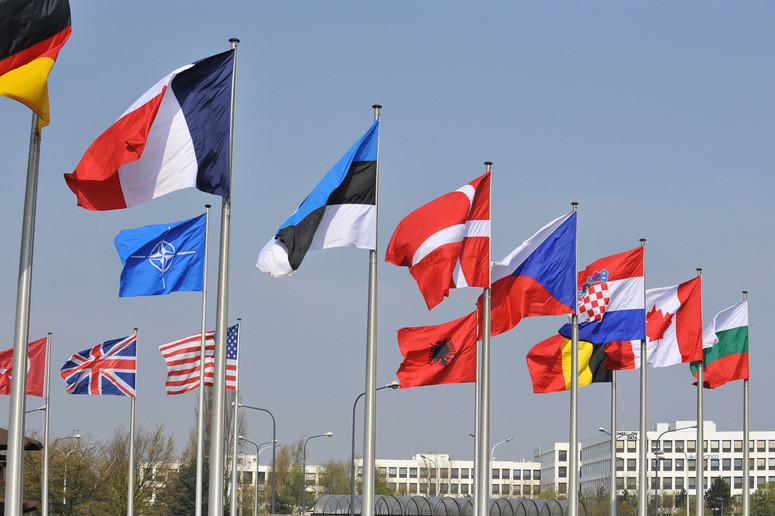On 4 April, a ministerial meeting marked the 70th anniversary of NATO and confirmed the solidarity of the alliance.
At the meeting, the talks covered the future of NATO and the changing security situation, including Russia and the effect of the violation of the INF Treaty, the Estonian foreign ministry said in a statement.
The Intermediate-Range Nuclear Forces Treaty, or the INF Treaty, is an arms control treaty between the United States and the Soviet Union, and its successor, the Russian Federation. The US president, Ronald Reagan, and the Soviet general secretary, Mikhail Gorbachev, signed the treaty on 8 December 1987.
The US president, Donald Trump, announced on 20 October 2018 that he was withdrawing the US from the treaty, accusing Russia of non-compliance. The US formally suspended the treaty on 1 February 2019, and Russia did so on the following day in response to the US withdrawal.
A strong, united and adaptable defence organisation
“The allies expressed support for Ukraine and Georgia and approved a package of measures aimed at bolstering the security of the Black Sea,” the ministry said. “This includes joint exercises with the navies of Ukraine and Georgia for improving cooperation capabilities. Several allies are already conducting air policing missions in the Black Sea region.”
The participants of the meeting noted that NATO was a strong, united and adaptable defence organisation that has served the interests of its members well and helped increase transatlantic security – the unity of the alliance helped bring the Cold War to an end and ensured peace on the Balkans.
According to the undersecretary of the Estonian foreign ministry, Paul Teesalu, the alliance must continue to work towards ensuring NATO is capable of preventing all current and new security threats and maintaining the safety of people – whether related to technological innovations, climate change, cyber and hybrid threats or terrorism. “When facing an unpredictable and complicated security situation, it is important for the allies to meet the responsibilities they have taken on, and significantly increase defence spending by 2024, as well as improve their capabilities for participating in NATO operations and missions,” the statement said.
The discussions also covered the fight against terrorism. Participants stressed the importance of continued action against ISIS in Syria and Iraq. They also noted that while ISIS had lost its territory, the threat of terrorist attacks remains high.
Russia needs to recommit to the INF Treaty
“It is important to identify foreign combatants leaving the conflict zone and stop the spread of terrorist cells. In addition to military operations, it is essential to prevent the financing of terrorism and facilitate post-conflict reconstruction,” Teesalu said, according to the foreign ministry.
The participants of the meeting noted that it was not possible to preserve the INF Treaty without Russia recommitting to complying with it. “As this currently seems unlikely, we must also prepare for a post-INF situation. There must be an ongoing adaptation of the defence and deterrence capabilities of NATO to continue ensuring the security of allies,” the ministry added.
In his presentation, the head of the Estonian delegation Paul Teesalu thanked the allies for their support for Estonia and reaffirmed the country’s continued commitment to the alliance. “The presence of allied forces in Estonia confirms the solidarity of NATO,” he said.
I
Cover: Flags of the 28 NATO member countries.

